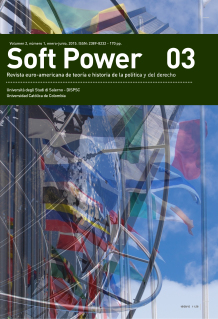Abstract
This article intends to offer a methodological clarification of Foucault’s genealogy in relation to judicial practice, with the aim to apply it to judicial governance. In particular, it shows that beyond the distinctive questions of the debate on government by judges (creation of law and democratic legitimacy), a specific form of judicial governmentality has been created since 19th century, through the complex relationship of judiciary with technologies of power and forms of knowledge. The article tries to demonstrate that the problem of the government by judges can be rewritten and that judicial governance constitutes a new chapter of the judicial governmentality, a form of governmentality that makes the expertising the result of our legal and moral history.











